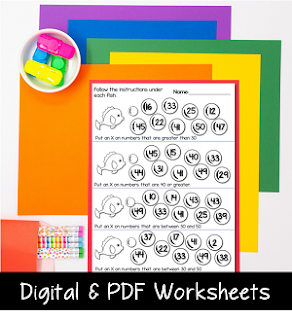
A simple, Science of Reading-aligned system for teachers who want to stop guessing and start growing readers
You know you need to assess phonemic and phonological awareness, but you're unsure where to start.
If you're a Kindergarten or 1st Grade teacher, interventionist, or literacy coach, you've likely faced this: not knowing what tools to use or collecting data that doesn’t translate into action. The truth? Assessing phonemic awareness is only helpful if it leads to intentional instruction. In this post, I’ll walk you through how to assess phonemic awareness, what to do with the data once you have it, and how to easily plan small-group and whole-class instruction using one low-prep tool.
This process saves time, reduces overwhelm, and fully aligns with the Science of Reading.
Why Assessing Phonemic Awareness Is a Must
Phonemic awareness is a foundational skill for early readers, and when it's missing, decoding, spelling, and fluency all suffer. However, because these skills are oral, many teachers wonder how to track them accurately without using apps or complicated spreadsheets.
A good phonemic awareness assessment should be:
- Oral
- Skill-specific
- Quick to administer
- Easy to analyze
That’s exactly why I created the Phonemic Awareness Assessment Pack, which provides teachers with the tools they need to collect data and plan effective instruction.
How to Assess Phonemic Awareness in Kindergarten and First Grade
Here’s the system I use to assess and track 19 key skills across the school year:
- Start with a simple screening tool. This tool has all the skills I need to assess. There are 5 items per skill, so the screener doesn't take long to do.
- After assessing, I transfer scores onto a student tracking sheet and a class status form to see patterns at a glance. This is where grouping becomes fast and clear.
- Now I can begin instruction and progress monitoring tasks to work on the gaps with my students.
These components are all included in the bundle, so there is no need to build them yourself!

What to Do With Phonemic Awareness Data After Assessment
Now comes the fun part: turning that data into instruction. Look at your filled-out status sheet and ask:

- Are several students struggling with the same skill? That’s a small group (syllable deletion).
- Is there a class-wide weakness? Target that skill in whole-group instruction (phoneme substitution).
- Do students fall into “clusters” of skills? Create flexible, needs-based groups (medial sound identification, phoneme blending).
This type of analysis can be completed in minutes once you have a clear data sheet and a solid system in place.
Planning Small Group Instruction Based on Your Data
Here’s what one of my phonemic awareness small group lessons typically includes:
Word List Warm-Up

I grab a skill-specific, color-coded word list from my word lists resource. Each list is fully scripted, and 19 skills are included, so you have word lists for every phonological and phonemic awareness skill. They're print-and-go and para/volunteer-friendly.
Quick Oral Game
We might play “Rhyme Around the Table” or another fast-paced, skill-targeted oral activity. No tech, no fuss—just pure practice.
Hands-On Reinforcement

I often follow up with puzzles, clip cards, or oral tasks with visuals. These are great for engagement, especially with younger learners. Having a collection of hands-on phonological and phonemic awareness tasks keeps students interested and practicing the skills they need.
How to Incorporate Whole-Class Instruction
You will spend dedicated time on phonemic awareness during your literacy block, but it doesn't have to stop there. When your data indicates that a majority of students need help with a particular skill, find natural ways to incorporate it into your daily routine. I do just that with my word lists.
- Line-Up Time: Use your word lists to prompt a sound manipulation task.
- Morning Meeting: Practice isolating sounds or syllables together.
- Anytime you have a few minutes!
Even 2–3 minutes of consistent oral practice builds confidence and automaticity.
Why I Use This All-in-One Phonemic Awareness Toolkit
This Phonemic Awareness Word Lists & Assessments Bundle is what I wish I had years ago. It includes:
✔️ 235 word lists covering 19 phonemic and phonological skills✔️ BOY/MOY/EOY screeners with easy scoring
✔️ Progress monitoring tools with A/B/C forms
✔️ Class tracking sheets and teacher scripts
✔️ Parent letters for home practice
✔️ Fully aligned with Science of Reading best practices

Whether you're assessing phonemic awareness in Kindergarten, supporting struggling readers in 1st grade, or running RTI groups, this bundle streamlines everything.
If you need hands-on activities, you can find them here:

From Data to Action
Make your life easier with an easy-to-use phonemic awareness assessment tool. With a simple system and the right tools, you can group students confidently, teach intentionally, and see real growth.
You don’t need apps. You don’t need complicated spreadsheets. You need a clear path from assessment to instruction and a tool that makes it easier.












.png)









Thank you for sharing, as a very ancient teacher these skills are ones we used from day 1 sadly they fell out of favor and many teachers I speak with today do not understand how powerful these skills can be.
ReplyDelete